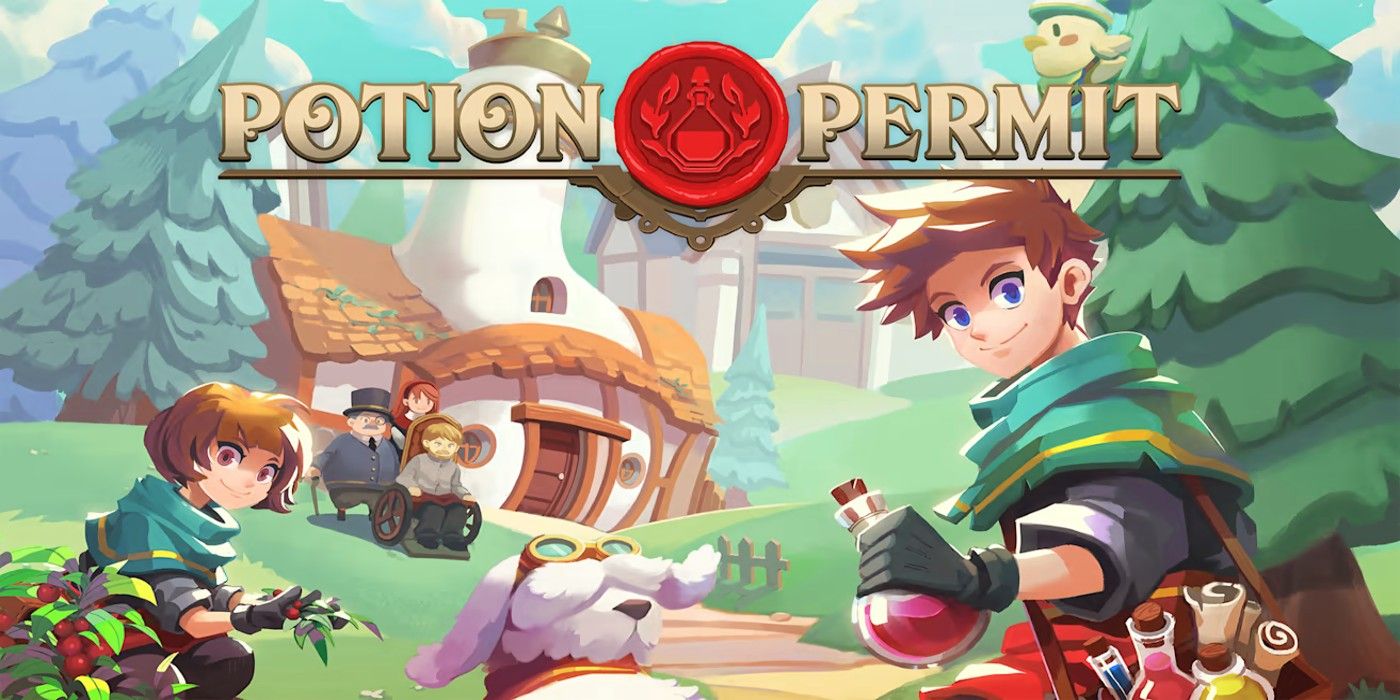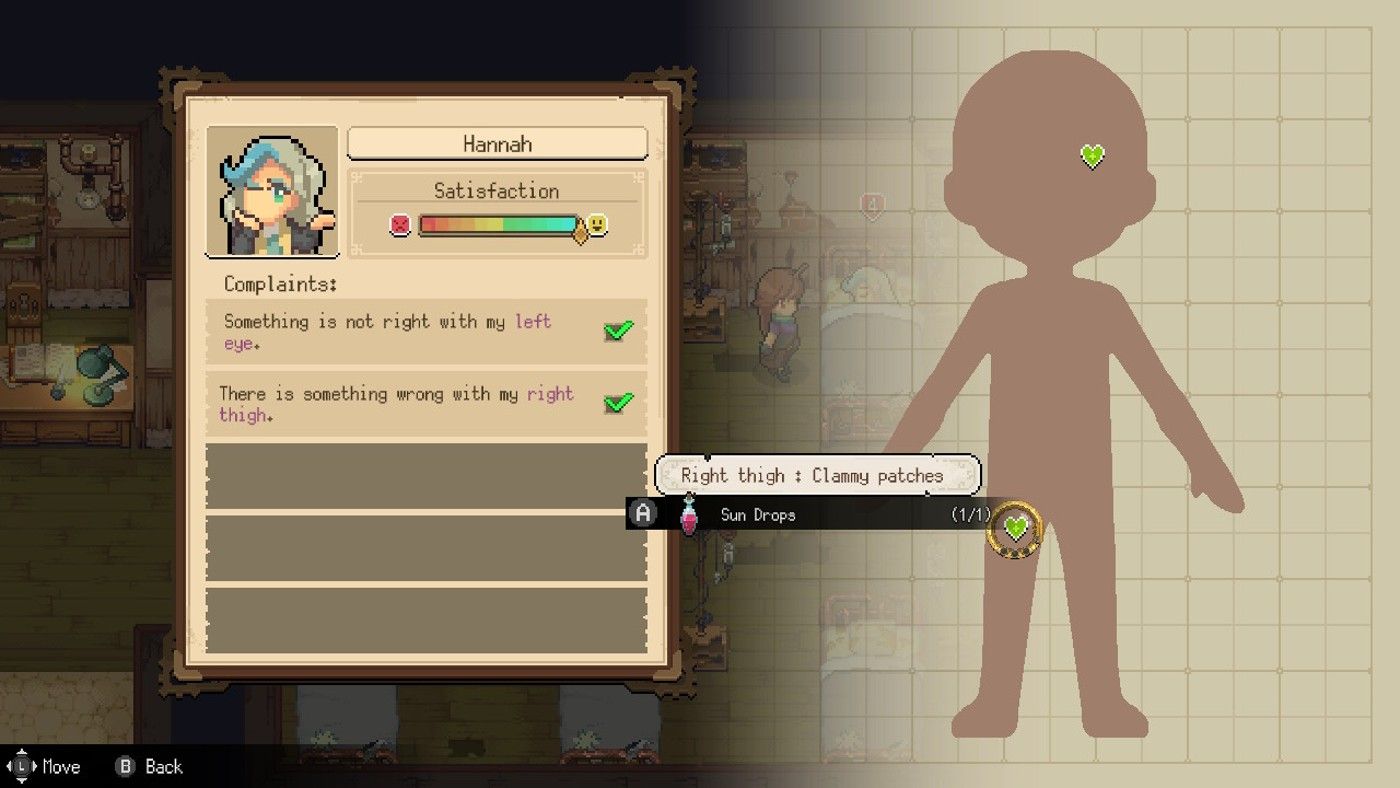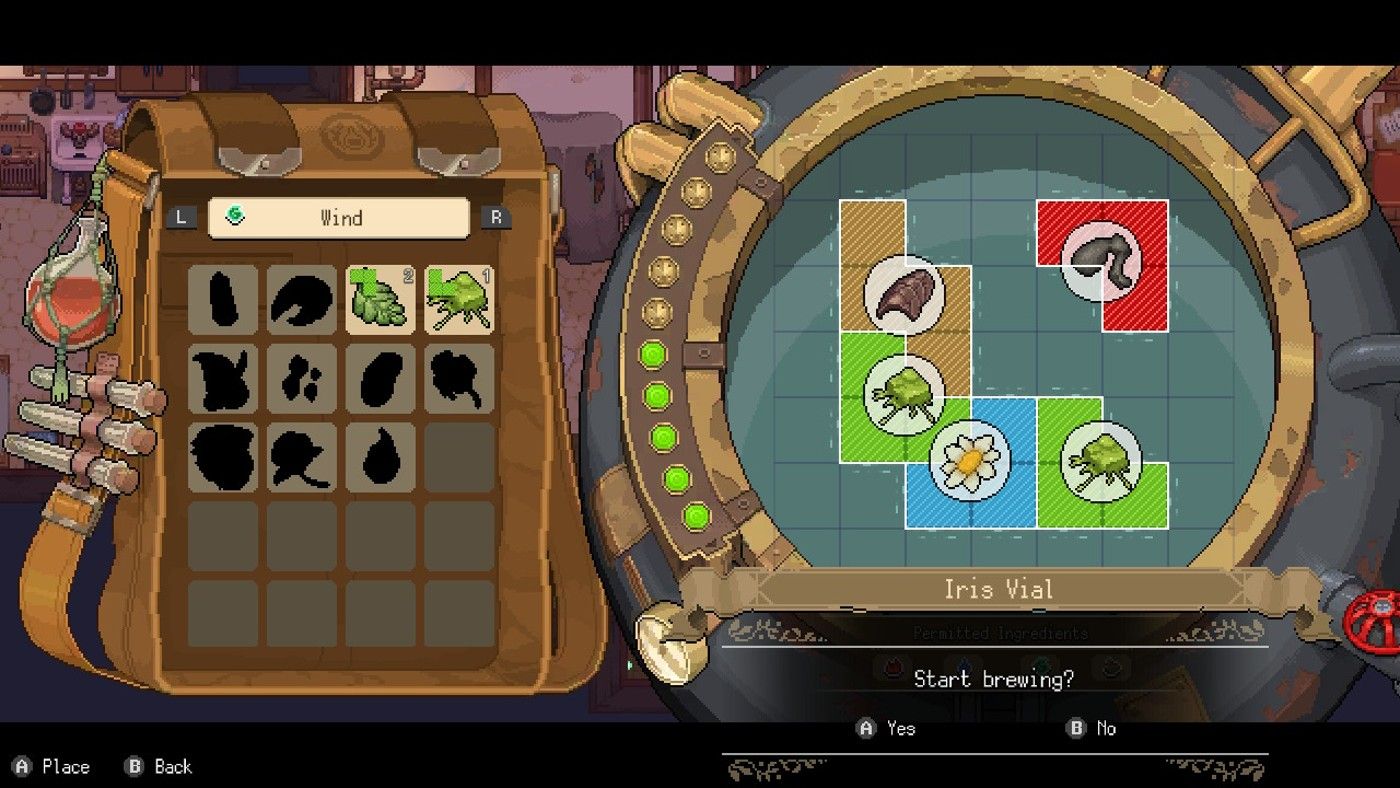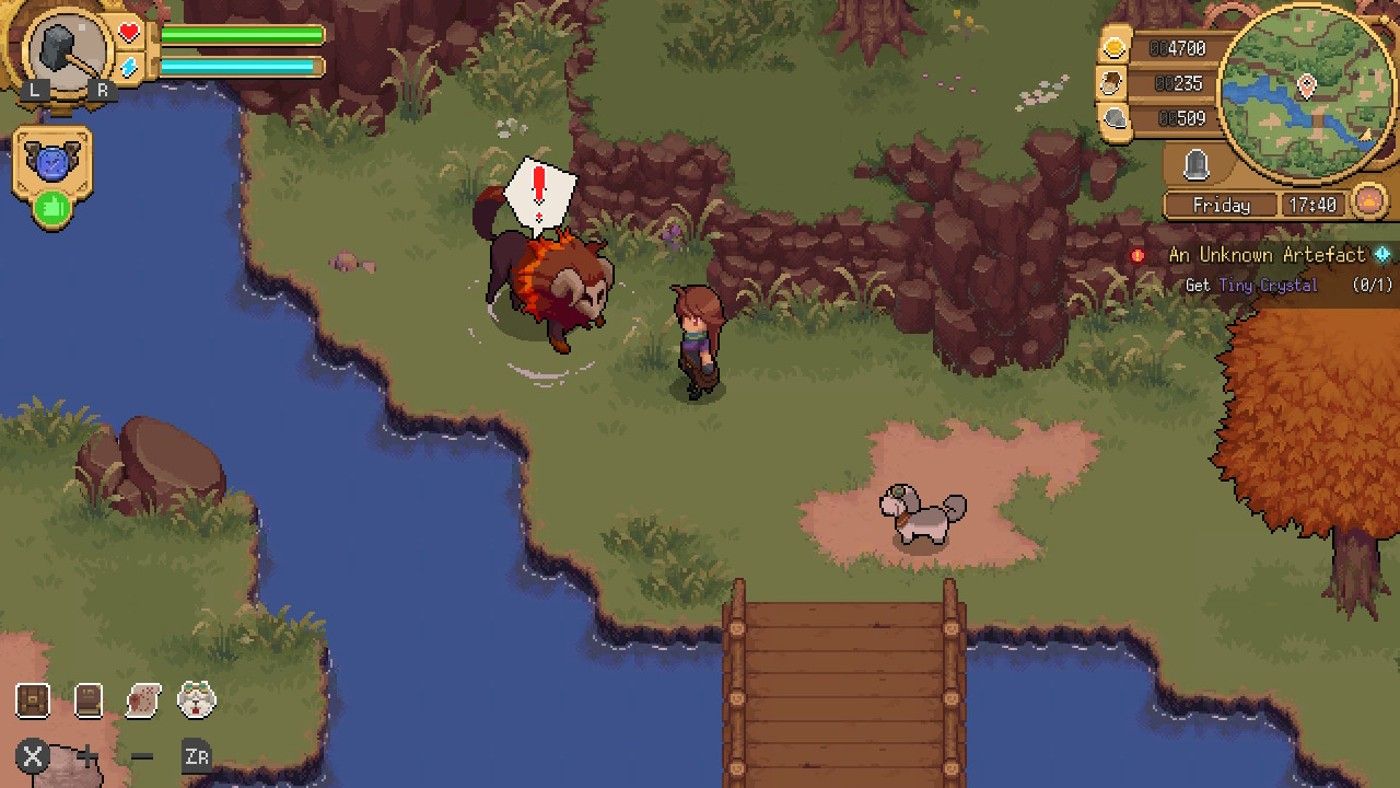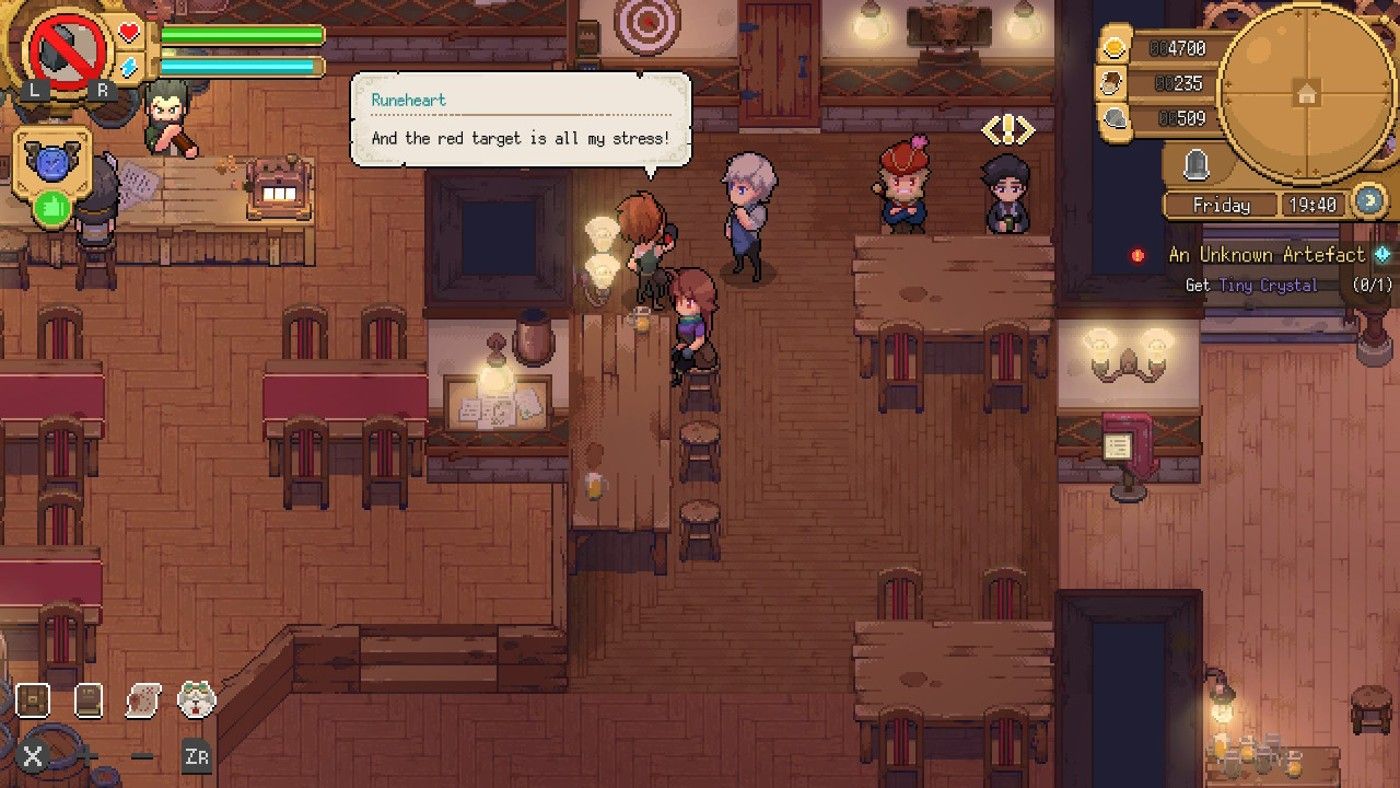Potion Permit, from developer MassHive Media and publisher PQube, adds a unique alchemy twist to the typical simulation title, placing players in the role of a chemist from the city who's come to a small town to open a clinic. Unlike many titles in the cozy video game genre, Potion Permit contains absolutely no farming elements, completely focusing on the potion aspects of the game. This is a welcome change that creates a satisfying gameplay loop alongside interesting characters, but some monotony and bugs hold the game back.
Potion Permit begins in the town of Moonbury, where the player's chemist character - who is mildly customizable - and their dog companion have just arrived from the capital at the behest of Moonbury's mayor, Myer. Myer's daughter Rue has fallen ill, and all the attempts by town witch doctor Matheo to cure her have failed. The player has been summoned with great reluctance, as Moonbury had a past experience with a capital chemist that permanently marred the town's ecosystem, causing all residents to have a great distrust for the profession in general.
It's always refreshing to play a simulation game with a service industry job instead of the typical farmer role, and Potion Permit offers a deeply interesting take on the concept. Patients will come into the player's clinic several days a week - though not every day, which is a nice respite to focus on other aspects of gameplay - complaining of various ailments. First sick villagers must be diagnosed, which is done through focusing in on the trouble areas and then completing one of a few different minigames, like a brief memory test.
After a verdict is reached, players will return to their cauldron to brew up any necessary potions through an engaging puzzle system. Each potion has a uniquely-shaped set of squares which must be filled in using foraged materials, all of which have their own unique shape, creating a sort of Tetris-esque element of gameplay without the time limit. Cauldrons in Potion Permit also have an upgradeable maximum ingredient capacity, which means players can't simply make potions using a dozen tiny ingredient pieces, and will be able to use more resources in recipes over time. This can be further complicated by recipes that only allow some types of ingredients, which fall under the categories Fire, Earth, Wind, and Water. All of these elements come together to make a solid gameplay loop that makes foraging truly worthwhile.
Foraging in Potion Permit will take players to a few different sprawling biomes, each with their own unique resources and creatures, which can also be slain for materials like fur and slime. Potion Permit is a game that makes exploration rewarding - players will encounter troubled areas in nature that they can help flourish once more through their alchemy, often resulting in new resources sprouting up. It's oddly exciting to discover a new material's shape, perhaps finally finding the oddly-formed piece that will fit perfectly in a particularly difficult potion.
Moonbury's town area is charming as well, with aesthetics that are reminiscent of Graveyard Keeper. The town is fairly large, which could be frustrating in a game where time each day is precious, if it weren't for one of Potion Permit's best features: teleportation. Players can unlock various teleportation locations throughout both town and the wilderness which can be accessed at any time using the in-game map, the usefulness of which can't be overstated for a game of this format where players will want to spend time both building relationships around town and foraging daily.
Similar to Stardew Valley's Heart Events, Potion Permit includes special cutscenes with each character as a player's relationship with them improves, each of which includes a quest that must be completed before players can continue to increase the relationship. However, Potion Permit takes a completely different - and welcome - approach to how they're treated. Instead of players stumbling upon cutscenes for each level blindly, every time players cap out a relationship level with a villager, a note will be posted on the Moonbury bulletin board with a set-up for how to trigger the special event, including timeframe and location.
Residents also do not have preferred gifts, instead using Moon Cloves as a universal gift, eliminating the common need for a dozen game encyclopedia tabs open at all times. Potion Permit's characters are a bit hit or miss, but there are undoubtedly some charming folks in the mix with interesting backstories. While players can romance characters in Potion Permit and go on cute dates, there are unfortunately few options to choose from, with some of the game's flirtiest characters curiously unable to be romanced, and marriage not an included feature either.
There are a handful of other activities to do around town in Potion Permit, although for the most part they get monotonous quickly. A few odd jobs in the form of minigames can be done around town, like packing mail at the post office or grinding grapes at the church to make some quick money, but they're too simplistic to be much fun. To a lesser extent the same can be said for fishing, although this activity has the added benefit of skill progression and fish collection. Players can also accept other standard fare tasks from a request board, like collecting certain amounts of materials.
Sadly, Potion Permit has few glitches that, while they aren't game-breaking video game bugs, are hard to ignore. There are semi-frequent frame rate drops, as well as an issue where players cannot click through a conversation and must restart the game, although the latter is rarer than the former. Moonbury's lovely idea of an arcade center is unfortunately useless, as the machine provided's minigame is completely broken. The game also often alerts the player via flashing light and siren to a patient in the clinic, only for no patient to be there, which is frustrating as the clinic is such a large part of gameplay.
However, despite these frustrations players will likely still find themselves returning to Potion Permit for hours at a time - it's incredibly easy to get in a "just one more day" loop despite some of the game's duller moments, because the puzzling and progression elements like improving as a chemist, forging friendships, and upgrading the clinic are so satisfying. At its core, Potion Permit is a unique and cozy indie game that clearly has a large amount of effort and ambition behind it, which helps it overcome some - but not all - of its flaws. For players looking to sink dozens of hours into a different style of simulation title, brewing up a life in Potion Permit may be just what the doctor ordered.
Potion Permit will release on Playstation consoles, Xbox consoles, Nintendo Switch and PC via Steam on September 22. A Nintendo Switch code was provided to Screen Rant for the purpose of this review.

